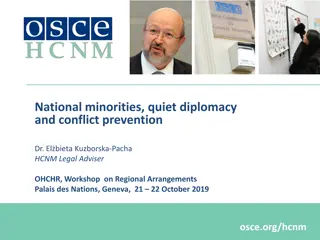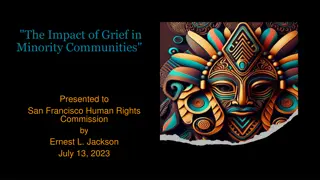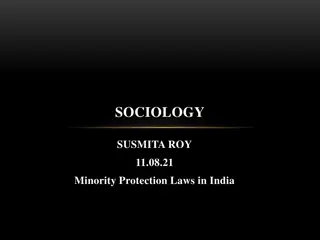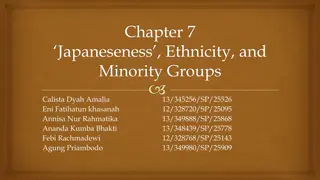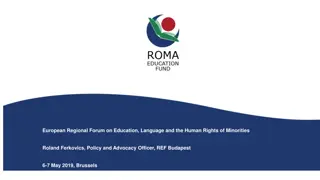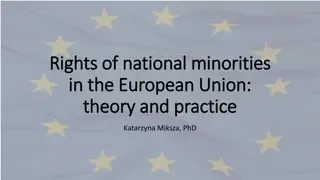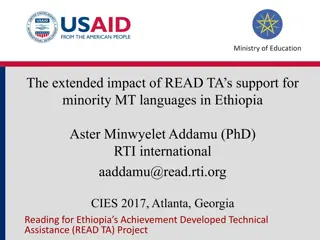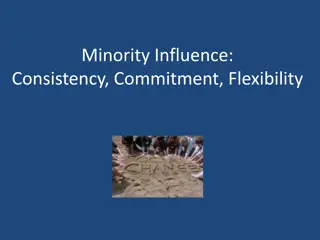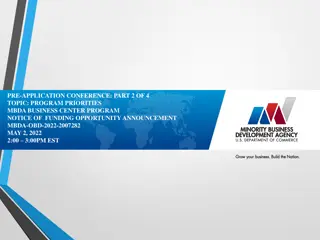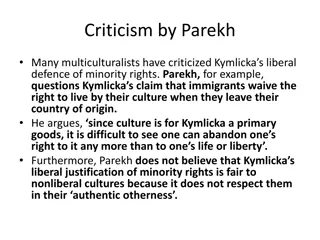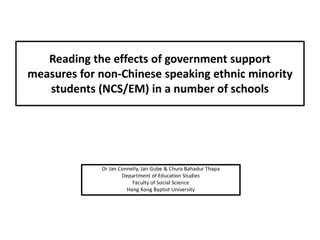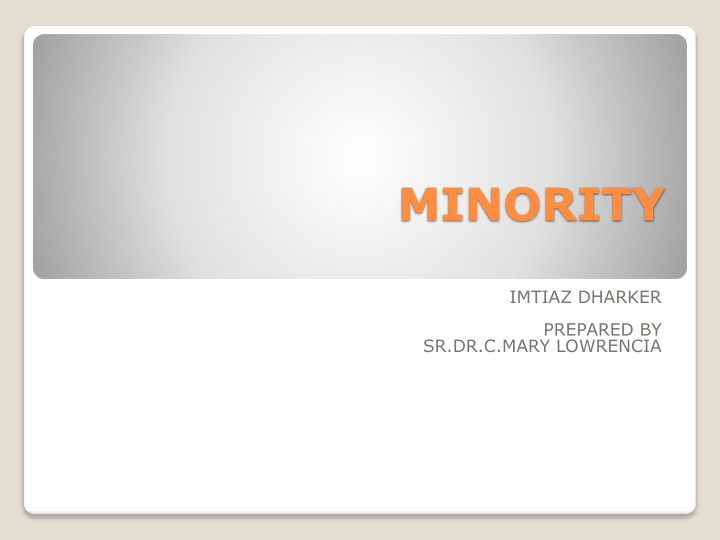
Insightful Poem by Imtiaz Dharker on Identity and Belonging
Explore the insightful poem "Minority" by Imtiaz Dharker, delving into themes of foreignness, displacement, and identity. Dharker's powerful words resonate with those who have experienced feeling like a "foreigner everywhere." Discover the speaker's poignant reflections on not fitting in and the cultural complexities of being caught between different worlds.
Download Presentation

Please find below an Image/Link to download the presentation.
The content on the website is provided AS IS for your information and personal use only. It may not be sold, licensed, or shared on other websites without obtaining consent from the author. If you encounter any issues during the download, it is possible that the publisher has removed the file from their server.
You are allowed to download the files provided on this website for personal or commercial use, subject to the condition that they are used lawfully. All files are the property of their respective owners.
The content on the website is provided AS IS for your information and personal use only. It may not be sold, licensed, or shared on other websites without obtaining consent from the author.
E N D
Presentation Transcript
MINORITY IMTIAZ DHARKER PREPARED BY SR.DR.C.MARY LOWRENCIA
This is another wonderful poem by Imtiaz Dharker. I think Dharker is one of the most exciting poets writing in English today; her work is so fresh and relevant, and I love the way she doesn t shy away from subject matter that is politically taboo. I particularly love the way she explores identity in her poems.
Minority gives a very insightful depiction of what it feels like to be foreign in many places. The poem begins with the line, I was born a foreigner . How can you be born a foreigner? Well, sadly today in many of our Western societies (including in the UK and in my adopted country, France) the children of immigrants can be made to feel this way. The poem says, I was born a foreigner and carried on from there/ to become a foreigner everywhere/ I went .
Minority gives a very insightful depiction of what it feels like to be foreign in many places. The poem begins with the line, I was born a foreigner . How can you be born a foreigner? Well, sadly today in many of our Western societies (including in the UK and in my adopted country, France) the children of immigrants can be made to feel this way. The poem says, I was born a foreigner and carried on from there/ to become a foreigner everywhere/ I went .
The speaker in the poem seems to belong nowhere even in the place/ planted with my relatives . On returning to the country of her parents, this speaker feels like a foreigner, too. In this situation, many people understandably feel incredibly displaced and victimised, as they find themselves facing prejudice from both the country they were born in, as well as the country of their parents and relatives.
The speaker tells us I dont fit. She compares herself to food cooked in milk of coconut/ where you expected ghee or cream or an unexpected aftertaste/ of cardamom or neem . I love this use of taste to describe a feeling of being foreign; it s so evocative. A country s cuisine is essential to its culture and so I think this is a very clever inclusion here. I also find it very interesting that Dharker imports flavours from her own very multicultural identities, which are (as well as British) Pakistani and Indian.
he subject of the next stanza if language, and this is something that I can relate to personally, having lived, studied and worked in abroad for several years now. The speaker talks about that point where/ the language flips/ into an unfamiliar taste , and words become a tripwire .
Is she talking about accent here, where the language might taste differently on the tongue? Or is she talking about being unable to find the words for something? I have heard many people say this about being bilingual; it is incredibly frustrating when you cannot think of a word in the language you are trying to speak, because you are afraid that you might be better at one language than another. This only adds to the feeling of not- belonging that runs all the way through this poem.
The penultimate stanza explores the act of writing, and its role in the creation of identity. Dharker uses beautiful language to describe herself (or the speaker) going scratch, scratch at the growing scab on black and white . I just love this description of writing as a scab . She is writing to make sense of a wound, or even to heal it. Dharker encourages the notion of the transformative and healing power of literature here, and then she remarks upon its democracy.
Everyone has the right/ to infiltrate a piece of paper , she writes; the page is not prejudiced; it doesn t fight back . Poetry becomes a medium through which the speaker can freely express herself a way she can communicate. And perhaps the message will get through to people; literature is a great teacher of empathy. Who knows , writes Dharker, perhaps these lines will scratch their way/ into your head break through the prejudices that community and family can breed.
Perhaps one day, she writes in the final verse, you (the reader) will meet the stranger sidling down your street and recognise that face as your own . I just love the way the poem suddenly turns on the reader, near the end, with that very direct you . Dharker is putting the reader on the spot; these questions are now directly put to us. This poem beautifully displays its author s belief in the power of literature to transform, educate and create understanding, and I think it s a wonderful piece.



